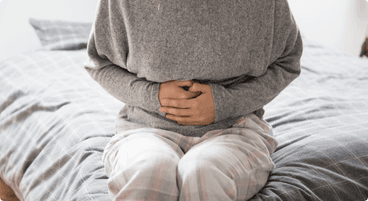SHARE
Menstruation brings discomfort to most women; however, do you know the stress and period pain connection?
For many women, the arrival of their period brings not only blood but also a familiar feeling: period pain, also called dysmenorrhea.
It causes constant sources of cramps, aches, and general discomfort. These aches, cramps, and the pain that often accompanies them can range from minor to very severe, rendering one inept even for doing normal things and affecting the well-being of people overall.
At first glance, the link between stress and period pain may seem very trivial, but it is more complex than most people think. Hormonal shifts, muscle tension, and inflammation are all major stress pathways and they can all cause more painful menstruation time.
The knowledge of the stress and period pain connection and the clues to managing it might help; you can rely on them to feel better each month.
How Stress Affects Your Menstrual Cycle
One of the ways that stress affects the menstrual period is through the potential to disrupt the delicate hormonal balance, which controls periods. Long-term stress leads to irregular periods, which could mean a delay in periods or even heavier bleeding as a result.
Another important thing is that stress might indirectly affect the intensity of the menstrual cramps that a woman is experiencing. It can be a trigger for the body to make more prostaglandins, chemicals that induce uterine contractions.
So, a cycle is created in which stress causes periods to be prolonged and more painful, lasting longer and unpleasant periods. Furthermore, stress is able to cause muscle tension, even in the uterus, which causes stronger and more painful contractions.
To interrupt this pattern is the key thing to start making your life better and to get rid of the monthly discomfort.
Stress aggravates inflammation in the body. So, increasing inflammation, the stress-induced menstrual cramps become more complicated, hence period pain becomes more severe.
In addition, other abnormalities such as stress and period pain can be detected by:
- Bloating and stomach problems
- Having longer or more irregular periods
- Mood changes and increased sensitivity to pain
- Fatigue and failure to sleep
It may be the case that during anxiety-provoking times you feel that your menstruations have become subtler the case is very common, and you should not feel lonely in this process. The connection between stress and period pain is a well-studied one, while successful stress management can lessen the symptoms.
Managing Period Pain Through Stress Relief
Stress management will not only help you ease the symptoms of the menstrual period but will also decrease the pain itself.
A few stress-reduction strategies in your daily life can successfully relieve your menstrual cramps. Below are six practical ways:
1. Embrace Relaxation Techniques
To our nervous system, deep breathing, meditation, and yoga are effective as they create a calming effect and decrease stress levels. These activities can help you find relief from the muscle tension and the inflammatory process during menstrual cramps.
2. Get Some Exercise
Exercise, among other benefits, improves the release of endorphins – the body’s natural painkillers. Gentle activities such as walking, swimming, or performing a few relaxing movements are good for both your cramps and your mood.
3. Get Enough Rest
Lack of sleep means an increase of stress and hormone imbalance, which in turn leads to more severe period pain. Respect your body’s need for sleep and give it at least 7-9 hours of undisturbed sleep to be able to rest and get hormonal stability.
4. Follow a Balanced Meal Plan
Metabolic balance reduces inflammation. A good diet mainly composed of unprocessed, healthy fats, and lean protein foods is essential. It is also wise to reduce excessive consumption of caffeine and processed food.
5. Use Heat
Get muscle relaxation and pain alleviation by utilizing a heating pad or taking a warm bath. Heat therapy has been able to show similar results to painkillers in the management of the menstrual phase of the pain cycle.
6. Get Emotional Support
Speak to a therapist or a support group. Emotional support is a crucial component when it comes to lessening period pain through stress relief and increasing overall wellness.
Reduced stress reduces period pain. Integrate stress-relief practices into your daily routine to promote a balanced hormonal level and eliminate the inconvenience of having a period.
Period Pain Self-Care: When to See a Doctor
Lifestyle changes can help with managing period pain, however, at times it is essential to seek professional medical help. Speak to a licensed healthcare professional in case of severe cramps that cause you to stop working, experience very heavy bleeding, or irregular periods.
You can manage your period pain in a healthy way, if stress is the only problem that makes it painful and not any other factor. Taking professional advice if necessary.
Conclusion
If you need advice on period pain, or you need a certificate for health reasons, or for work, Panraa Clinics is a hassle-free and cost-effective option. You simply go online and place a request for a period pain medical certificate and this fast and easy way will save a lot of your precious time and effort. You can reach the relevant page Panraa Clinics to consult professionals and take charge of your health.
Understanding the stress and period pain connection can help you take proactive steps toward relief. Manage stress effectively and you can experience a smoother, less painful menstrual cycle for better health.
IN THIS BLOG
